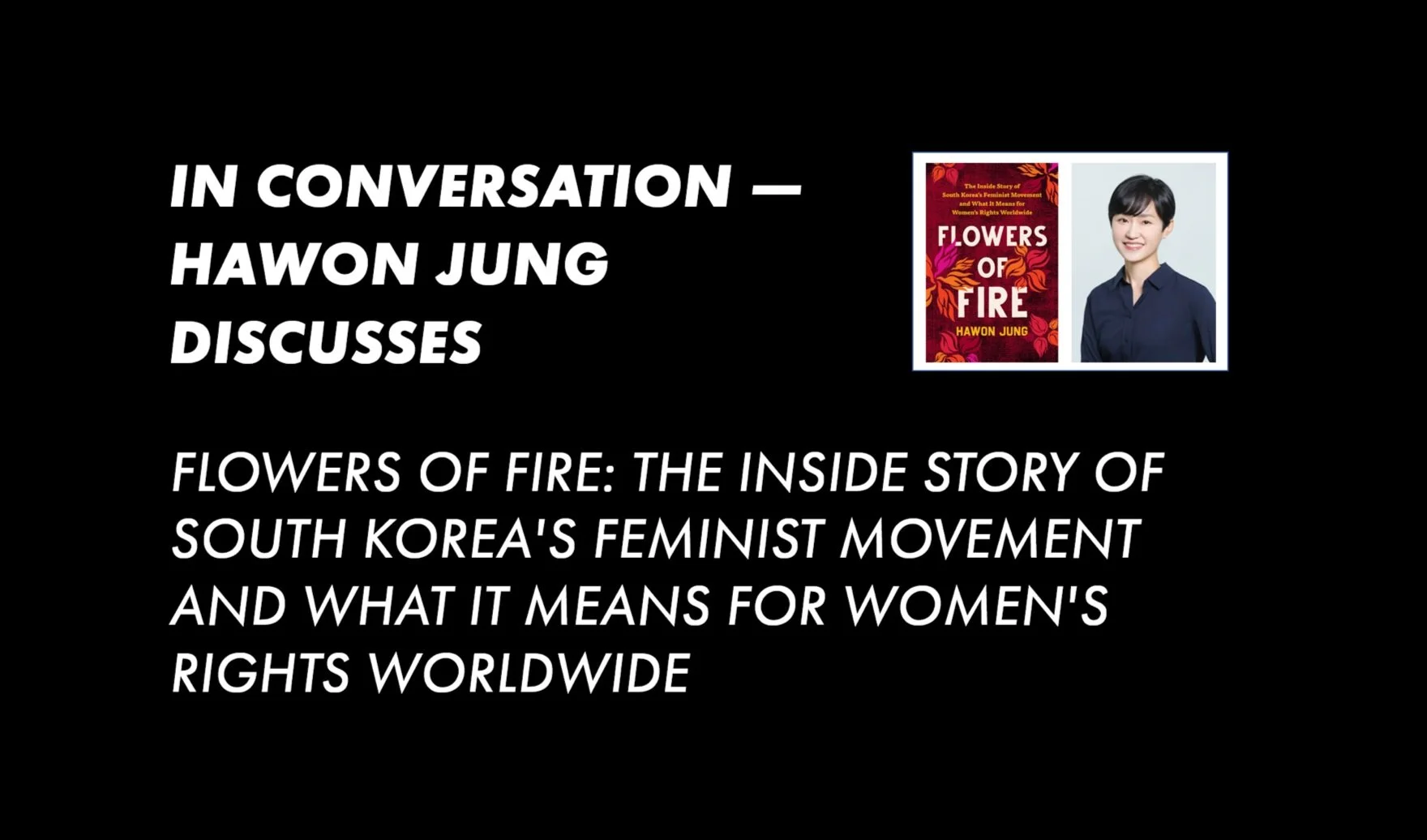9DASHLINE asks a select group of experts to assess the outcomes from the recent G7 Summit held in Japan.
Read MoreWritten by Sian Troath
Whether people oppose the acquisition of nuclear-powered submarines, have mixed views, or support it, they often do ground their assessments in strategic analysis and a consideration of other priorities.
Read MoreWritten by Dr Vivek Mishra
To effectively counter threats from both China and Pakistan, India needs to maintain a twin-domain focus, enhancing its capabilities in both the continental and maritime domains.
Read More9DASHLINE recently had the chance to speak with Hawon Jung about her important new book Flowers of Fire: The Inside Story of South Korea's Feminist Movement and What It Means for Women's Rights Worldwide.
Read MoreWritten by Syed Ali Zia Jaffery
The crisis can only end if the government realises that preventing people from exercising their right to vote will be counterproductive going forward.
Read MoreWritten by Rupert Schulenburg
A rotational deployment of US ground-based anti-ship missiles to Philippine bases would constitute a major deepening of US-Philippines defence cooperation and could bolster regional deterrence.
Read MoreWritten by Bhumika Sevkani
The development of these seaports is particularly crucial for the smaller landlocked countries of South Asia such as Nepal and Bhutan.
Read MoreWritten by Dr Kei Koga and Dr Karthik Nachiappan
Rather than focusing on divergences between Japan and India or between the G7 and the G20, the areas of convergence (such as energy and food security, inflation, and climate) should be turned into functional linkages.
Read MoreThis week, 9DASHLINE enjoyed the opportunity to have a candid discussion with Member of the European Parliament, Reinhard Bütikofer, where we sought to gauge his views on Europe, its interests in the Indo-Pacific, and its ties with China.
Read MoreWritten by Dr Kerry Brown
In this context, the one positive Russia offers to China is that it does not belong to the Western bloc. Xi’s seemingly warm words to Putin are an acknowledgement that his enemy’s enemy is his friend.
Read MoreWritten by Gesine Weber
If France wants to seize the opportunity for asserting leadership among Europeans on the Indo-Pacific, it will also be up to the President to preach what the country already practices.
Read MoreWritten by Fei Su and Xiao Liang
Despite concerns over the transparency on the official figures, the sustained growth in China's military spending demonstrates its unwavering commitment to the PLA’s modernisation to become a ‘world-class’ military by the mid-21st century.
Read MoreWritten by Dr Ryo Hinata-Yamaguchi
Without continuous efforts in Japan including securing monetary and political capital — together with coordinating and cooperating with regional partners — Tokyo’s push for defence modernisation will face a myriad of challenges going forward.
Read MoreWritten by Adrienne Wu and Melynn Oliver
Those who argue for a formal remilitarisation of Japan should consider why they advocate such a move. Amending Japan’s constitution has proven unnecessary to expand the SDF, therefore the only major benefit is to assay the fears of the Japanese public and expand its international role.
Read MoreWritten by Kina Kunz
If the current trend continues, we may be witnessing New Zealand in the process of edging away from its hedging position and instead committing to the US bloc in this ‘new Cold War’.
Read MoreWritten by Xuyang Dong
Australia is being remade into an active and helpful middle power in its region with its own agency, constructively and strategically navigating its presence in the geopolitics of growing China-US rivalry.
Read MoreWritten by Dr Matteo Dian
Both US allies and non-aligned partners are deepening their security relationship with Washington as their main insurance policy against increasingly frequent Chinese coercion.
Read MoreWritten by Dr Maurizio Geri
Both the Malaysian and Philippine governments should be careful not to allow pressure from these disparate groups to create discord which could unravel the critical progress made so far through the Bangsamoro peace process.
Read More
















